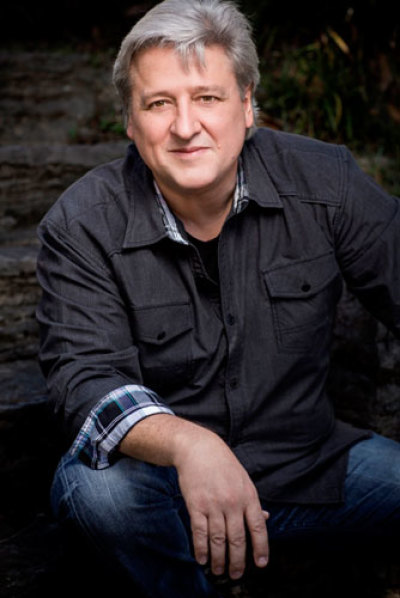This Evangelical Christian Is Looking Forward to 'The Shack'

"You haven't been reading 'The Shack,' have you?"
That question, lobbed at me by a pastor, served as my first encounter with an indignant population in the Christian community who felt the book by Paul Young is heresy at worst — or sappy at best.
Accusations over the years about The Shack include: it makes God resemble a "New Age Oprah Winfrey," it uses "a pagan name for the Holy Spirit," and it creates a "dangerous and false image of God and idolatry."
Years ago, a friend recommended The Shack to me during one of our regular conversations about suffering and God's provision and sovereignty. Never once did I consider The Shack a theological or doctrinal treatise; rather, I accepted it for what it was: one man's exploration of heartache, pain, and loss in the context of his faith. I knew nothing of Paul Young then, and I know little more of him today.
What I can state, however, is that The Shack describes a frank engagement of brutal circumstances between a heartbroken man and the God he thinks he knows. Framing the raw questions that all of us who regularly deal with the ugliness and harshness of life often ask, The Shack relays a fictional encounter between the main character and an unconventional representation of the Almighty (and the Trinity) — a candid, poignant, challenging, and deeply touching encounter.
That alone is the reason I appreciate the book and am looking forward to the movie.
As a thirty-year caregiver for my wife, who lives with severe disabilities due to a nightmarish set of medical circumstances, each question included in The Shack has made it into my frequent late-night conversations with the ceiling fan. Those sleepless nights represent my ongoing struggle to make sense of the senseless. From raising my fist to God in rage over the unfairness, to collapsing in uncontrolled shame and guilt over my own failures, I have explored a vast territory of engagement with the Almighty — and still find myself struggling to come to grips with so much of what seems pointless and harsh.
Like Paul Young, and like the main character in The Shack, I too have offended the sensibilities of fellow believers who have brushed the edges of my own "great sadness."
In my three decades of watching, often helplessly, while my wife suffers in ways that few people do, I am learning to be more comfortable with ambiguity while also gaining increasing peace in the knowledge that God doesn't feel the need to explain all of this to me.
Like Paul Young, when confronted with this world's pain and sorrow, I am drawn back to God's irresistible grace — and to the cross that stands alone as proof of God's immeasurable love for us and His answer to all the hard questions. The encounter with Christ and His work on the cross trumps the need for an explanation.
After all these years, I am no longer threatened by hard questions from others — or books or movies that explore them. In fact, I welcome them. Anyone who mines the heartbreak of life in an honest and sincere way, even if their "mining method" is unconventional, provides me the great privilege to address their pain with the same comfort that God Himself comforts me.
We must remember: people who read books or go to movies like The Shack aren't looking to embrace poor theology; they are hurting and are dealing with their hurt in the best way they can. Instead of sternly stating, "Woe unto them," these critics might try embracing more individuals in their woe instead.
Sound doctrine and theology are important. Just as my convictions have not lessened because I read The Shack, so seeing the movie will not compromise my understanding of Scripture, the Trinity, or the atonement of my sins that Christ made possible on the cross. The Shack does provide, however, a greater opportunity to treat with compassion those who carry the secret pain and guilt of questioning the goodness of God as they bear tragic, crushing burdens.
The popularity of The Shack was due in great part to vast numbers of people struggling to find a message of hope and comfort in their heartache.
Those of us who have experienced that hope and comfort can follow what Paul stated in 2 Corinthians 1:3-4, "Blessed be the God and Father of our Lord Jesus Christ, the Father of mercies and God of all comfort, who comforts us in all our affliction, so that we may be able to comfort those who are in any affliction, with the comfort with which we ourselves are comforted by God."
In The Shack (or any other popular work of fiction exploring the providence of God), there is a real opportunity. But that opportunity will be missed if Christians remain distant and indignant. Soon, people grappling with the terrible heartbreak and isolation caused by pain, disability, and tragedy will gather together — but not necessarily at churches. Rather, these souls who are struggling to find peace in their sorrow, these "fields that are ripe with harvest," will be gathered in one place — a local cinema.
Let's meet them at The Shack.
"But Jesus said to him, 'Do not forbid him, for he who is not against us is on our side.'" Luke 9:50



























